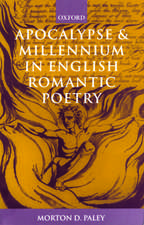The Idea of Europe in British Travel Narratives, 1789-1914
Autor Katarina Gephardten Limba Engleză Hardback – 28 iul 2014
| Toate formatele și edițiile | Preț | Express |
|---|---|---|
| Paperback (1) | 260.13 lei 43-57 zile | |
| Taylor & Francis – 14 oct 2024 | 260.13 lei 43-57 zile | |
| Hardback (1) | 1005.01 lei 43-57 zile | |
| Taylor & Francis – 28 iul 2014 | 1005.01 lei 43-57 zile |
Preț: 1005.01 lei
Preț vechi: 1225.61 lei
-18% Nou
Puncte Express: 1508
Preț estimativ în valută:
192.30€ • 201.32$ • 159.12£
192.30€ • 201.32$ • 159.12£
Carte tipărită la comandă
Livrare economică 07-21 aprilie
Preluare comenzi: 021 569.72.76
Specificații
ISBN-13: 9781472429544
ISBN-10: 1472429540
Pagini: 248
Ilustrații: Includes 14 b&w illustrations
Dimensiuni: 156 x 234 x 16 mm
Greutate: 0.59 kg
Ediția:Revised edition
Editura: Taylor & Francis
Colecția Routledge
Locul publicării:Oxford, United Kingdom
ISBN-10: 1472429540
Pagini: 248
Ilustrații: Includes 14 b&w illustrations
Dimensiuni: 156 x 234 x 16 mm
Greutate: 0.59 kg
Ediția:Revised edition
Editura: Taylor & Francis
Colecția Routledge
Locul publicării:Oxford, United Kingdom
Recenzii
'Gephardt's range of consideration is impressive: she moves smoothly from fiction to newspaper accounts to published travel diaries and journals to analysis of etchings that underscore her discussion of shifting images and the development of photography at the century's end. That range is what makes the book so fascinating; it serves as eminently readable literary analysis but is contextualized so broadly as to develop its considerations into and upon many other fields.' European Romantic Review
Notă biografică
Katarina Gephardt is Associate Professor of English at Kennesaw State University. She has published on nineteenth-century British literature, travel writing, and pedagogy, and her other research interests include postcolonial studies and Central European literature.
Cuprins
Chapter 1 Introduction Imagining the Continent; Chapter 1a Hybrid Gardens: Nationalization of Taste, Travel Writing, and Ann Radcliffe's Continental Landscapes; Chapter 2 The Occidentalist Costume: Lord Byron and Travelers' Perspectives on Eastern Europe; Chapter 3 From the Prison of the Nation: Tourism, Anglo-Italian Dialogue, and Mid-Victorian Remapping of Italy; Chapter 4 The Mirror Image: British Travel Writing and Bram Stoker's Eastern Europe; Chapter 5 Postscript Dense Westerners and Persistent Peripheries: Edwardian Fictions of Europe and Beyond;
Descriere
Showing how specific rhetorical strategies used in nineteenth-century British travel writing produced fictional representations of continental Europe in works by Ann Radcliffe, Lord Byron, Charles Dickens, and Bram Stoker, Katarina Gephardt argues that nineteenth-century writers envisioned their country simultaneously as distinct from the Continent and as a part of Europe. She suggests that their imaginative geography of Europe anticipated Britain’s ambivalence about European integration.














